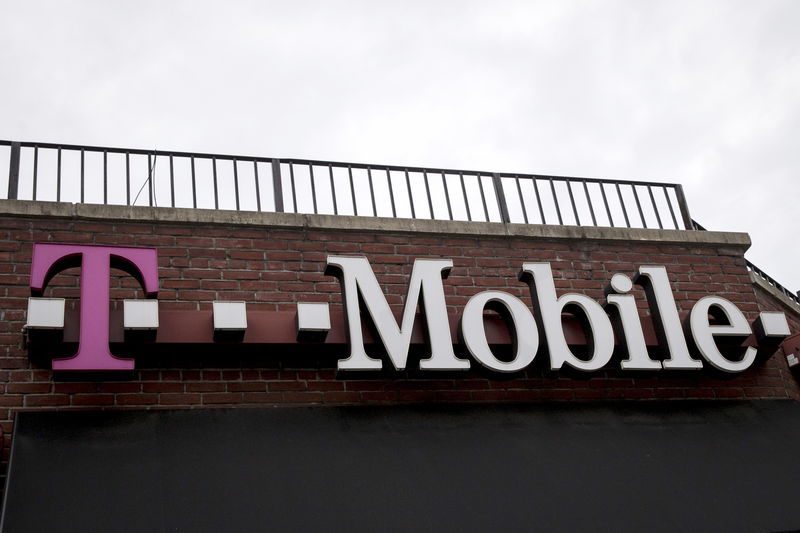Investing.com — Shares of T-Mobile US (NASDAQ:TMUS), Inc. fell on Monday following a double downgrade by RBC Capital Markets and Wells Fargo (NYSE:WFC), both of which expressed concerns about the wireless carrier’s valuation and decelerating growth.
The downgrades flagged a growing consensus among analysts that, while T-Mobile’s fundamentals remain solid, the stock’s current valuation leaves limited room for further upside.
RBC Capital Markets downgraded T-Mobile to “sector perform” from “outperform,” lowering its price target to $240 from $255.
Meanwhile, Wells Fargo issued a similar downgrade, moving T-Mobile to “equal weight” from “overweight” and cutting its price target to $220, down from $240.
Both brokerages cited deceleration in T-Mobile’s growth rates and the challenges of justifying its valuation premium relative to peers.
RBC analysts noted that T-Mobile’s EV/EBITDA multiple—currently at nearly 11x FY25 estimates and around 10x FY26 estimates—limits further upside potential, particularly in a higher interest rate environment.
Despite T-Mobile’s consistent execution and leadership in wireless net additions, RBC argued that the company’s valuation appears “full.”
“The low-hanging fruit of Sprint synergies is now behind them, with EBITDA growth expected to decelerate from ~10% growth the past 3 years to ~6-7% going forward (and likely 4-5% or below beyond 2027),” said analysts from Wells Fargo.
Wells Fargo said that while T-Mobile will likely maintain its position as “best in class” for subscriber and EBITDA growth over the next three years, the low-hanging fruit from Sprint synergies has largely been realized.
Free cash flow growth also faces headwinds, according to Wells Fargo. The brokerage expects flat FCF growth in 2025, with modest growth of about 3% between 2024 and 2027, driven by rising cash taxes, increased capital expenditures, and higher interest expenses.
They adjusted their 2025 levered FCF estimate to $16.8 billion, down from $17.1 billion previously.
Both brokerages said that T-Mobile’s aggressive share buyback program—estimated at $15–20 billion annually over the next three years—will provide technical support for the stock.
RBC maintained its 2025 buyback forecast at $14 billion, while Wells Fargo flagged buybacks as a critical driver of 8–9% FCF per share growth through 2027.
However, analysts expressed caution about T-Mobile’s potential use of excess cash for acquisitions, including smaller fiber assets, which could add complexity to future financial models.
T-Mobile’s competitive edge in subscriber growth remains intact, but analysts flagged risks tied to evolving industry dynamics.
RBC projects T-Mobile will add 869,000 postpaid phone subscribers in Q4 2024, leading the industry, but they expect total postpaid net additions to decline to 1.6 million, down from earlier forecasts of 1.67 million.
Wells Fargo forecasts industry-wide gross additions to slow, with T-Mobile’s annual net additions decelerating from 3 million to approximately 2.5 million in the coming years.
The analysts also pointed to growing competition from Verizon (NYSE:VZ), which has made strides to improve its wireless market share. Longer-term risks include increased subscriber bundling with AT&T (NYSE:T) and Verizon fiber offerings, which could reduce switching activity and pressure T-Mobile’s growth rates.
Both RBC and Wells Fargo have tempered their price targets for T-Mobile. RBC’s revised target of $240 reflects the challenges of sustaining high multiples in a higher interest rate environment, while Wells Fargo’s reduction to $220 assumes slower growth and valuation compression relative to peers.
Additonally, T-Mobile continues to trade at premiums to competitors, with current multiples of ~11x next-twelve-month EBITDA and ~15x FCF, compared to ~7x and ~9–11x for AT&T and Verizon.

